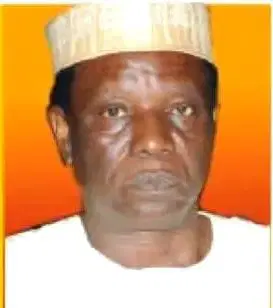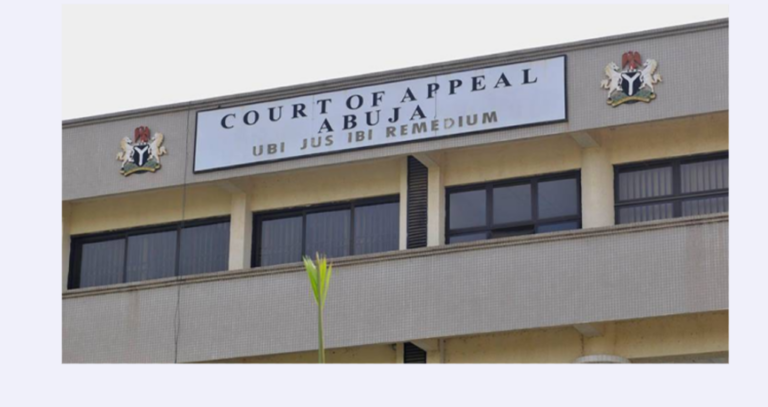
The urge to pray for the survival of Nigeria’s Labour Party (LP) has suddenly become a patriotic duty; not for the sake of the party but to rescue Nigeria’s democracy. It is really saddening that since 1999 when democracy was restored in the country, the otherwise known best system of government in other climes has remained a motionless experiment in Nigeria. How come ours is the only country where no one can identify the political grouping to which any politician belongs?
As of today, the national chairman of the ruling All Progressives Congress (APC) was a few years ago, a state deputy governor under a different political party. No one is sure if the national chairman of the Peoples Democratic Party (PDP) and his executives are not members of the APC making it obvious that politics in Nigeria is a game of chance with no speck of principles.
In a Nigerian election, it is easy to see a ballot paper displaying the logos of as many as 18 political parties but no less than 14 of those parties are fake and are merely used by those running them as revenue generating entities. With less than one month to the next Edo governorship elections, 5 such parties, the other day declared their support for one of the few real parties. When asked to explain their decision, they said what their parties wanted to do are exactly same as that of the candidate they are now supporting. How come they never knew that? The reality therefore is that Nigeria is made up of a team of political speculators who see politics as an avenue for material exploitation and are thus prepared to even belong to more than one political party at the same time. This explains why the setting up of government has become a relay race between the two strongest political parties APC and PDP.
During the 2023 general elections, the charisma of Peter Obi, the presidential candidate of the LP and the fact that many Nigerians had become frustrated by the unending relay race between the leading political twins pushed many to support the Labour Party. Under the cover of the party, political power fell into the hands of charlatans, many of whom had earlier lost the nominations of the leading political traders. Except something is done quickly to remove the grains from the chaff, the LP would itself degenerate beyond the subsisting mercantile groupings. It is against this background that many welcome the on-going efforts to reposition Nigeria’s Labour Party. If that is done, it would be easier to expose the social democrats in the workers’ party whenever they decide to operate as capitalists and power grabbers. All those who are part of the struggle should thus be encouraged to take it to its logical end.
Last week’s stakeholders’ conference at Umuahia which constituted a 29-member caretaker committee to restore the LP to life is a right step in the right direction not necessarily in favour of the party but as stated earlier in the bigger interest of Nigeria’s democracy. To start with, the emergence of a strong LP would drive the drunken leading parties back to line. It would push them to remember that the main purpose of democracy as a system of government is to develop Nigeria and not for a group to confiscate the national wealth. To start with, it is good to hear that most well-meaning leaders of the party were all part of the Umuahia conference. Apart from Peter Obi and his 2023 running mate, Senator Victor Umeh, Governor Alex Otti of Abia State and other governorship candidates of the party such as Gbadebo Rhodes-Vivour of Lagos State, Chijoke Edeoga of Enugu State and Athan Achonu of Imo State were all reportedly at the meeting.
Another evidence that the stakeholders really mean business is that both the interim chairman and the secretary are tested politicians who are coming to office with strong administrative experience. Nenadi Usman, the chairman was once a senator representing Kaduna South. She had previously served as Nigeria’s Minister of Finance during the Olusegun Obasanjo administration. Coming in as secretary of the committee is former Senator Darlington Nwokocha, who was elected to represent Abia Central Senatorial District on the platform of the Labour Party in the 2023 general election. Nwokocha was later elected the Minority Whip/Principal Officer of the 10th Senate and Vice Chairman, Senate Committee on the NDDC. Earlier, he was in the House of Representatives, from 2015 to 2023 as the member representing Isiala Ngwa North/South Federal Constituency of Abia State.
In addition, for the first time in recent history, Labour party leaders appear to be on the same page. As Peter Obi explained at the Umuahia meeting, “we are not here to suspend or sack anybody, but to rebuild the party…. Whatever we are going to do in future, everybody is free to participate in it and nobody will be excluded…. Even after this meeting, we will continue with more consultations and reconciliation… In going forward, let everybody learn to sacrifice.” To Senator Victor Umeh (Anambra Central)”allowing the current leadership of the party to continue in office is like building on quicksand, saying nobody is against anybody…What brought us here is a doctrine of necessity…Our party is currently rudderless.” On his part, the Labour Party National Transition Committee chair, Comrade Abdulwaheed Omar described the Umuahia Decision 2024 as a turning point for Nigeria’s future as it brings to an end in the LP, “the era of transactional leadership of graft and crime.”
It is however worthy of note that like a normal viable political party, there are dissenting opinions by members. The Kaduna state chapter of the party for instance rejected the emergence of Nenadi Usman as the party’s National Caretaker chairman. In a statement, the State LP chairman, Auwal Tafoki, following the stance of the party’s outgoing National Working Committee led by Barrister Julius Abure, described the emergence of Usman, an indigene of the state, as illegal and unconstitutional. They raised 2 main allegations; first that Usman is allegedly not a registered member of the party and second that the organ which convened the Umuahia meeting was unknown to the party’s constitution. There is doubt however if these technical points make sense now that even the electoral body is shunning the LP. The party has not been invited to at least two recent major political activities organized by the Independent national Electoral Commission INEC.
It is valid and in order to raise technical points that should keep a political party within the rule of law and indeed, to avoid arbitrariness. But such technicalities would certainly become dysfunctional if they are intended to keep a political party in a state of dilemma in which little or no progress is achieved by the party while those holding it to ransom continue to appropriate its resources. In fact, crises in other Nigerian political parties are attributable to unending legal arguments employed by different factions to undo their parties. The support of this piece for the repositioning of Nigeria’s labour Party will evaporate if after the reforms, the party returns to the usual posture of political parties in Nigeria whose members are basically self-seeking. Instead, we look forward to the LP providing leadership and compelling other parties to see politics as a basis for societal development.
For this to happen, LP unlike other Nigerian parties must be well administered. The party must depart from the old system where everyone is pursuing public office to the detriment of an effective management of the ruling party. No Nigerian political party has a viable membership register. That must stop. There must be adherence to regular meetings of organs of a political party as enshrined in the party’s constitution. Nigerian political parties must stop working to the answer by holding national conventions whereas local and state congresses that should have elected delegates to the national conventions were not held.
Also to stop is the idea of politicians turning organs into secret cult like the case of legislators colluding to deceiving Nigerians about their remunerations. For example, many Nigerians were disappointed to find that labour party legislators from a social justice background joined others to accept unduly expensive official vehicles at the expense of the nation’s economy. The character of a Labour Party differs substantially from that.


